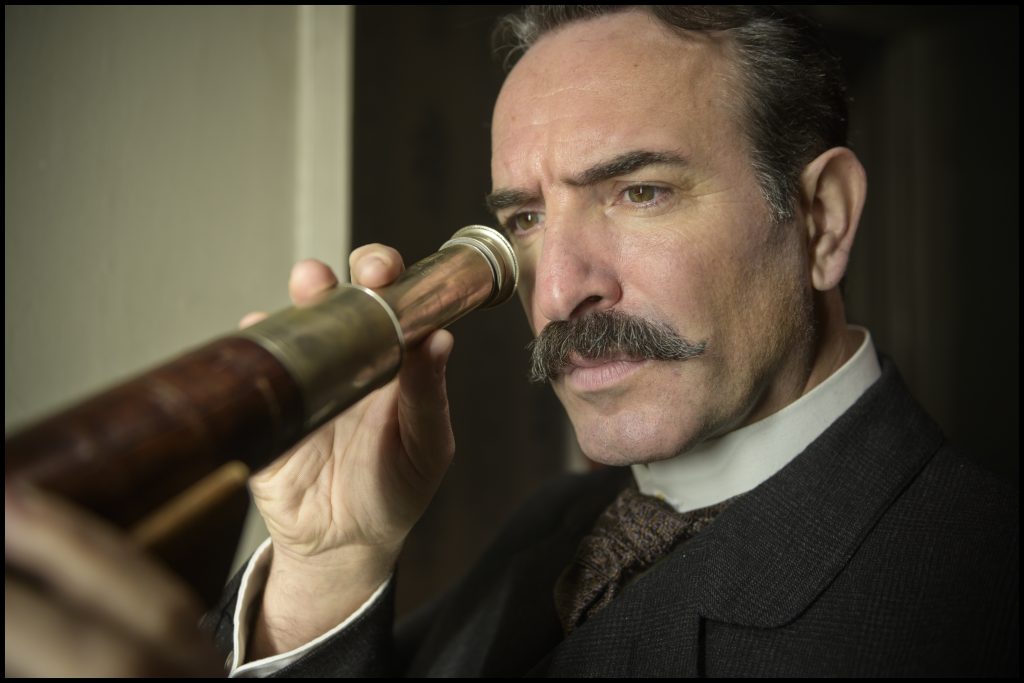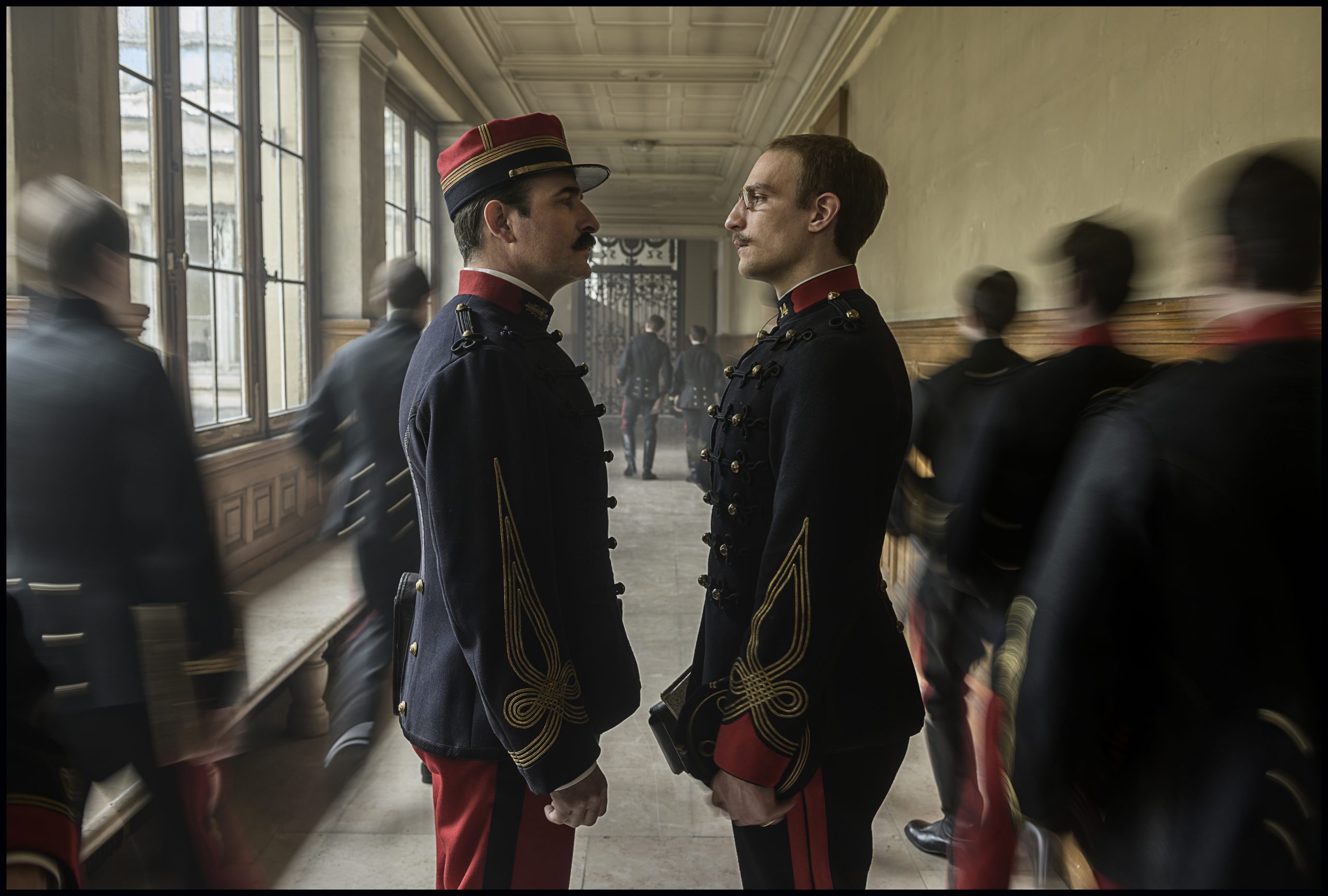A celebrated film at the 2020 Cesar Awards, France’s answer to the Academy Awards, the 2019 historical drama “An Officer and a Spy” (now playing in Boca Raton) has languished without U.S. distribution for six years, for one reason only: Its director is Roman Polanski.
Justifiably a pariah for fleeing to Europe in 1977 to avoid sentencing for his alleged rape of a 13-year-old girl, Polanski has continued to work well into his twilight (he’s now 92), though his last three films have been denied distribution in the States. “An Officer and a Spy,” a noble rendering of the Dreyfus Affair, a military and political scandal that rocked France during its Belle Époque era, reportedly is the best film of the bunch.
Separating the art from the artist, which one always must when critiquing Polanski’s movies, reveals a film that serves as a paean to the importance of justice served, even when that act of service is inconvenient, embarrassing or delayed—an ironic moral argument coming from a fugitive like Polanski, but no less powerful in its enactment.
The officer of the title is French Army Colonel Georges Picquart (Jean Dujardin), a reluctant truth-teller appointed to head the secret service section of the French Army a year after the sentencing of the film’s alleged spy, Alfred Dreyfus (Louis Garrel), a Jewish captain convicted of espionage on trumped-up charges. While Dreyfus languishes in isolation on Devil’s Island—the antisemitic military brass who fought for his conviction compare the verdict to “removing a pestilence from a healthy body”—Picquart finds his new digs less than glamorous. Working out of a dusty, sewage-scented office with a busted window, he finds himself the tip of the spear of an insidious surveillance state, whose shady underlings intercept and open private letters without warrants, and dig through their targets’ wastebaskets to reconstruct their shredded correspondence.
While in the process of disrupting his department’s lawless protocols, Picquart discovers a potential mole within the French military: Major Ferdinand Walsin Esterhazy (Laurent Natrella), who appears to be liaising with German intelligence. The more Picquart digs into the case—over the objections of his superiors—the more his findings indicate that it was Esterhazy, not Dreyfus, who had been stealing secrets for the enemy all along.

Though hardly a friend to the Jewish people, Picquart is a dogged tracker of the facts, concluding that Dreyfus’ summary trial, built on hearsay and circumstantial evidence, was a grave miscarriage of justice whose rot extends far up the chain of command. Told more than once to leave well enough alone, Picquart grows disillusioned, and worse, from the service to which he has dedicated 25 years. In the blunt words of one commander, “what do you care about one Jew stuck on a rock?”
Dujardin, who won an Oscar for his lead role in the 2011 silent feature “The Artist,” is well accustomed to subtlety in performance, which he displays in spades throughout “An Officer and a Spy,” wearing an initial visage of reticence that gradually boils into righteousness.
Scripted by Robert Harris from his own novelization of the Dreyfus Affair, “An Officer and a Spy” is a talky, lengthy film at 130 minutes. Some will find it dry, but I wasn’t one of them. Deliberate and attentive, the movie’s procedural heft is borne out of Polanski’s disinclination to omit a single detail. In this regard, the film echoes the late-period historical dramas of Roberto Rossellini—sweeping, dialogue-rich accounts such as “Cartesius” and “Blaise Pascal,” that cut no corners and left no informational stones unturned.
And like Rossellini, Polanski insists on accuracy that’s free of sentiment or sensation. Everything in “An Officer and a Spy,” from trials and antisemitic riots to duels and assassinations, is presented matter-of-factly, as actions of historical record captured for posterity. Always cutting rather than fading, Polanski swiftly advances us from scene to scene, often without context, trusting that we’ll follow along in his decade-long story’s turbulent flow. It’s the director’s most restrained and mature art film since his last collaboration with screenwriter Harris, 2010’s “The Ghost Writer,” another slow burn. It’s worth your time and attention, down to the last historical ember.
“An Officer and a Spy” is playing now at IPIC Theaters in Boca Raton and Cinépolis Luxury Cinemas Jupiter.
For more of Boca magazine’s arts and entertainment coverage, click here.







